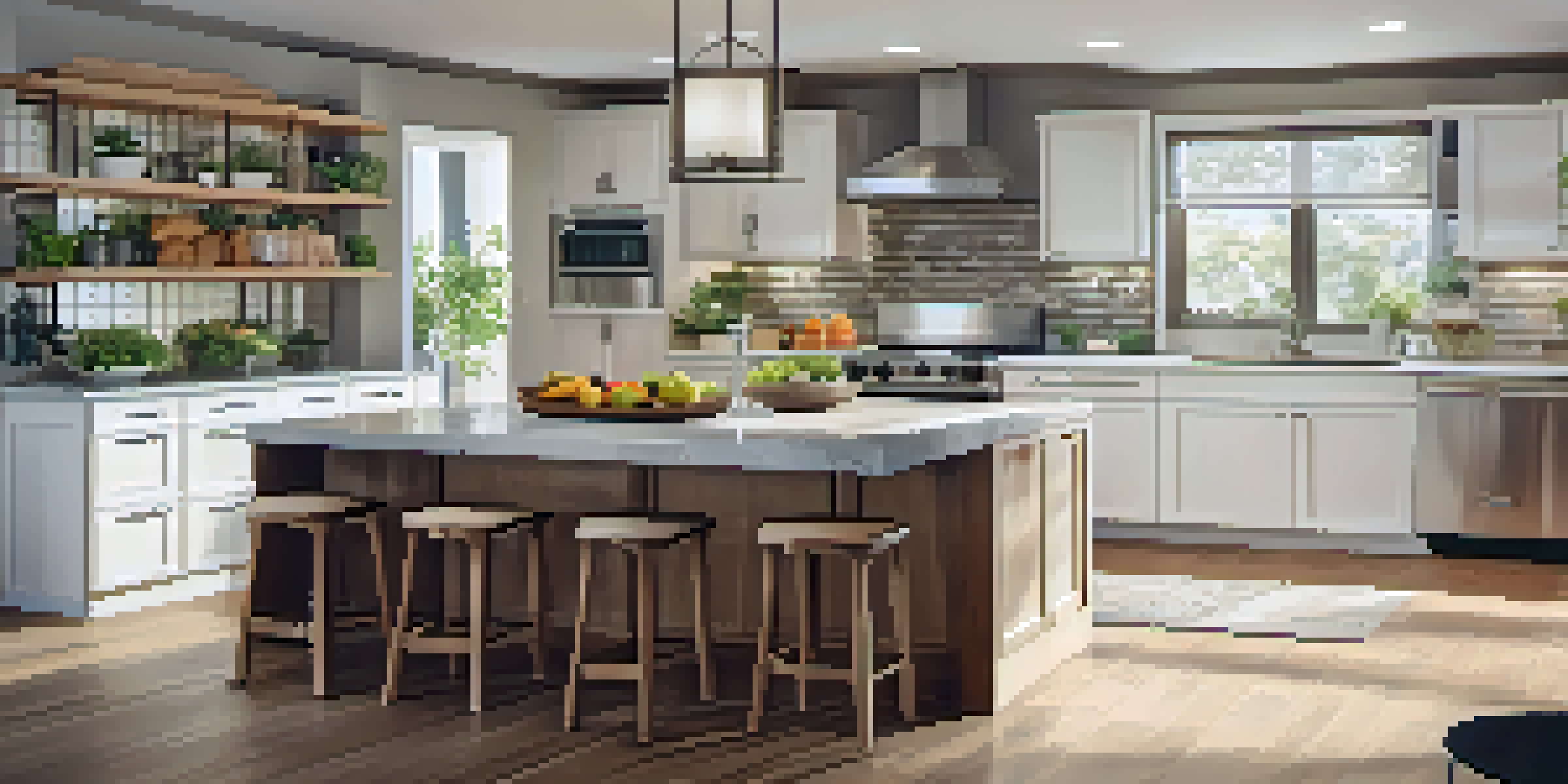Renovation Myths: What You Need to Know About ROI

Not All Renovations Increase Home Value Significantly
Many homeowners believe that every renovation adds substantial value to their home. However, this isn't always the case. Some projects, like high-end kitchen remodels, may not yield the expected return on investment (ROI). Instead, focusing on essential repairs or moderate updates can often provide better value.
Home improvements can be a great way to enhance your living space, but not all renovations will yield a return on investment.
For example, replacing a worn-out roof or upgrading outdated plumbing typically offers a higher ROI than luxury features. Buyers prioritize functional homes, so ensuring everything is in good condition can be more beneficial than extravagant renovations. It's essential to consider what potential buyers might value over personal preferences.
In short, while renovations can enhance your living experience, not every update guarantees a significant increase in value. Understanding which projects offer better returns can help homeowners make more informed decisions about where to invest their money.
DIY Projects Are Always Cost-Effective
Many people assume that tackling renovation projects themselves will always save money. While DIY can reduce labor costs, it can also lead to unforeseen expenses if mistakes occur. A small error in a plumbing project, for example, can result in costly repairs down the line.

Moreover, not everyone has the skills or tools required for complex tasks. What seems like a simple job might quickly escalate into a bigger problem, requiring professional intervention. This can negate any savings made by not hiring a contractor initially.
Not All Renovations Boost Value
Homeowners should focus on essential repairs rather than extravagant renovations to improve ROI.
Ultimately, it's crucial to weigh the potential savings against the risks involved. Sometimes, investing in professional help can save you money and stress in the long run, particularly for more intricate projects.
All Upgrades Guarantee a Quick Sale
There's a common belief that any renovation will lead to a quicker home sale. However, this isn't necessarily true. The real estate market is influenced by various factors, including location, market trends, and buyer preferences, which can affect the speed of a sale.
The best way to maximize your home's value is to focus on what buyers want, not just what you like.
For instance, while a fresh coat of paint can appeal to potential buyers, overly personalized renovations may deter them. Homebuyers often want a blank canvas that allows them to envision their style, so less is sometimes more. Therefore, understanding the local market can help you make more strategic renovation choices.
In essence, while certain improvements can make your home more attractive, they don't guarantee a swift sale. Focusing on broad appeal and essential updates can be more effective in reaching buyers.
Energy-Efficient Upgrades Always Pay Off
Many believe that investing in energy-efficient upgrades will always result in immediate financial returns. While these improvements can reduce utility bills and are often appealing to buyers, the ROI can vary significantly. Factors like home location, energy prices, and the type of upgrades made influence overall returns.
For example, installing solar panels may yield substantial savings over time, but the initial investment can be hefty. Some homeowners may not recoup these costs when selling, particularly if the market isn't receptive to such upgrades. It's important to research the local market's interest in energy-efficient features.
DIY May Not Always Save Money
While DIY projects can cut labor costs, mistakes can lead to higher expenses, making professional help worthwhile.
Thus, while energy-efficient upgrades can enhance comfort and sustainability, potential homeowners should carefully evaluate the long-term ROI based on their specific circumstances.
Luxury Features Guarantee Higher Home Prices
There's a misconception that adding luxury features, like a home theater or a high-end pool, will automatically increase your home's value. While these upgrades can enhance your lifestyle, they may not appeal to every buyer. In fact, many buyers prioritize practicality over luxury.
Consider that not all homebuyers are looking for extravagant amenities. In some markets, a simple backyard or a well-designed living space may be more attractive than a lavish pool. This means that lavish upgrades can sometimes limit your pool of potential buyers, affecting your sale price.
Ultimately, while luxury features can enhance your enjoyment of your home, they don't always translate into higher selling prices. Balancing personal tastes with market trends is essential when considering such investments.
Minor Repairs Do Not Matter
Some homeowners believe that minor repairs and updates are insignificant when it comes to home value. However, neglecting these small issues can lead to larger problems down the road. Things like fixing leaky faucets or patching up worn-out flooring may seem trivial, but they can significantly impact a buyer's perception.
Imagine walking into a home where small repairs are ignored; it can create a negative impression and raise concerns about the overall maintenance of the property. Buyers may wonder what other issues are lurking beneath the surface, potentially affecting their willingness to pay top dollar.
Market Trends Over Personal Taste
Aligning renovations with local market trends rather than personal preferences can enhance property value and appeal.
Therefore, addressing minor repairs can enhance your home’s appeal and show buyers that the property has been well cared for. Investing time and effort into these areas can yield surprisingly positive returns.
The Best ROI Is Always a Full Home Renovation
Many people think a complete home renovation is the best way to boost property value. However, this approach can be costly and time-consuming, often yielding mixed results. Sometimes, smaller, targeted renovations can provide better ROI without the stress of a full overhaul.
For instance, updating a kitchen with new countertops and appliances can be more impactful than gutting the entire space. Focusing on high-traffic areas and essential updates can create a more significant impression without the extensive costs of a full renovation. This method allows homeowners to maximize value while minimizing disruption.

Ultimately, the best ROI comes from strategic renovations that reflect current market demands rather than sweeping changes. Taking a thoughtful approach can lead to better financial outcomes.
Market Trends Matter More Than Personal Taste
Homeowners often fall into the trap of designing renovations based on personal tastes rather than market trends. While it's essential to create a space you love, aligning renovations with what buyers want can significantly impact ROI. Trends can vary widely between regions, so understanding local preferences is crucial.
For example, an open-concept floor plan may be in vogue in one area, while another market may still favor traditional layouts. Investing in styles that might not appeal to future buyers can diminish your property's value and marketability. Staying informed about local trends can help you make more strategic renovation choices.
Not All Renovations Add Value
Homeowners should prioritize essential repairs and moderate updates over luxury renovations to maximize return on investment.
In summary, while personal touches are important, keeping an eye on market trends can lead to smarter renovation decisions. Balancing your preferences with what potential buyers seek can maximize your investment.